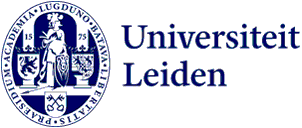
Column Faculty Board
At the beginning of this academic year, we informed you about the financial developments we are facing in our faculty. We explained that our faculty’s budget for 2024 shows a deficit and that we also expect a negative financial picture for the subsequent years, if policies remain unchanged. We therefore have to make decisions about what we can and can’t do over the next few years.

This is a difficult message, because its precise implications are not yet visible. We can well understand that you may have questions or concerns. As yet, we are certainly not able to answer all these questions, but it is important to us to be open and clear about the financial reality. We would also like to inform you about the steps we are taking to restore a financially healthy position. We are naturally doing this in consultation with the Faculty Council, the Management Teams of the institutes and the Executive Board.
In summary
In October we presented our faculty’s budget to the Executive Board with a deficit of € 2.2 million for 2024. We also anticipate deficits for the years after this, which will increase to around € 4 million per year if we do not take action now. Is this worrying? Yes, it is. But we are confident that we can take significant steps to improve our financial position and to make our faculty financially sustainable for the longer term. An important consideration in this is the quality of our education and research. In short: We have much to do! The first step is to make a thorough analysis of several key indicators that give insight into possibilities for financial control (income and expenses).

Analysis core group
We are currently engaged in making that analysis. Over the coming weeks, a core group – comprising strongly committed colleagues from the institutes and the Faculty Office departments, and led by Egbert Fortuin – will be working to obtain a clear picture of the relevant developments in our faculty. Examples include: How are student numbers changing? What trends can we see in the number of credits (ECs) being obtained? How has hiring of temporary staff changed over the last few years? How many PhDs are being awarded? And how do developments and trends within our faculty compare with those in other faculties and universities?
This is a major task. The core group will start by making a quantitative analysis. We expect the first results of this to be available by the end of November. A qualitative analysis will then be made to evaluate the significance of the developments. The quality of our research and education must in any event remain the highest priority. These analyses will give us a reliable picture of the true situation in our faculty. They will give insight into all the adjustments we can make to restore a healthy financial situation. With this basis, we will be able to progress further towards formulating a steering plan.
Parallel to the work of the Analysis Core Group, a steering group will be appointed in December 2023 to formulate advice and possible control measures on the basis of the analysis in combination with a qualitative interpretation. The plan is that this advice should be ready in the first quarter of 2024. The ultimate aim of this entire process is to reach a multiyear balanced and sustainable budget.
What will be happening in the future?
We will only be able to specifically determine the next steps after we have obtained the insights outlined above. What we cannot deny, however, is that in any case there are difficult choices ahead, because we need to bring income and expenditure in line with one another. We anticipate having to make decisions that will sometimes be painful. For example, we may have to ask whether some job vacancies need to be filled immediately. The Faculty Strategic Plan will play an important role in choices that are to be made. We trust that we will be able to make these decisions together, based always on the principle: strong research and education, and a pleasant work environment for everyone.
If you have any questions or concerns about the faculty’s financial situation, please feel free to discuss them with your manager, rather than keeping them to yourself. As members of the Faculty Board, we would also like to engage in discussion with you about this area and other matters of importance in the faculty. We will therefore shortly be introducing a drop-in session, where all colleagues with questions, concerns or ideas are cordially welcome. We will provide more details of this soon.
We will keep you informed about new developments relating to our faculty’s financial situation and future steps in this area.
Mark Rutgers, Saskia Goedhard
